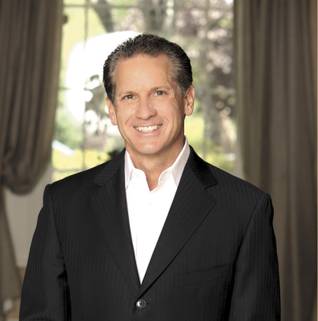
Barry Shier helped market Steve Wynn’s Mirage and Bellagio resorts when they opened. He now runs a consulting company.
Monday, Jan. 11, 2010 | 2 a.m.
The 1989 debut of the Mirage, Las Vegas’ largest and most expensive luxury hotel at the time, was a critical turning point in the city’s development.
Even with the most elaborate bells and whistles at their disposal, executives had to develop a strategy to attract a new kind of customer — people who thought Las Vegas offered little more than gambling and kitsch. Without these more discriminating visitors, failure loomed.
That task fell to Barry Shier, a former executive with New York’s famed Waldorf Astoria, who was hired by Steve Wynn to help run the Golden Nugget in downtown Las Vegas. As head of marketing for Mirage Resorts, Shier helped launch Wynn’s Mirage, Beau Rivage in Mississippi and Bellagio resorts.
After MGM Mirage swallowed Wynn’s company in 2000, Shier became an industry consultant.
Before launching his consulting firm, The Partner House, last year, Shier was developing plans for an Elvis-themed hotel. Those plans spoiled in the souring economy, leaving Shier with a sobered, though optimistic, outlook on the future of the Las Vegas Strip.
As with the Mirage debut, the recession and arrival of CityCenter are another turning point for Las Vegas — a time to rebound or stumble. To get through this recession, Shier says, Strip operators need to put down their Bloody Marys and add the following to their list of New Year’s resolutions:
Conventions, conventions
Casinos figured out early on that booking conventions and trade shows months or years in advance allowed them to charge higher rates for everyone else who tried to book rooms afterward.
When that business fell through in the downturn, rates fell harder. Until the convention market rebounds, business is going to be tough in Las Vegas. Lots of nice hotel rooms — the town’s chief asset — have become its biggest liability. Tourists aren’t enough to fuel the Strip.
Reinvest now, not later
Spending money to keep things fresh is a requirement in Las Vegas, a high-volume traffic zone where things wear out or tire faster than they do elsewhere. Now is the time for companies to update rooms and other attractions, not when business is at its peak and closing amenities for servicing will cost companies even more revenue.
While that will be tough for companies with big debts, they will be forced to keep up.
“When you don’t reinvest, you very quickly get behind the 8 ball,” which can significantly hurt profits down the road as customers see that “things weren’t what they used to be,” Shier said.
Forgoing improvements hurt employee morale, he added. “Your employees need to take pride in their facilities and what they represent.”
Don’t ignore penny-pinchers
Remember the adage: It costs more to cultivate a new customer than keep an old one.
Some hotel operators aren’t aware of how much their marketing departments are spending to attract each new customer and may be spending more than they should attracting new visitors rather than keeping the ones they have.
“Someone who spends $25 in a store is a potential customer who may spend more on the next trip” if they have a good time, Shier said. “A lot of people believe that once they get people into the property they’ve done what they need to do. That’s just the beginning. This is the time to shine, not when they have left and you’re telling them what they can do on their next trip.”
Customer service is key
Customers form an impression when they first step onto a property, before they speak with anyone. That first interaction with a customer is a critical time when the employee can either reverse a visitor’s negative first impression or confirm it.
To make good impressions, workers must set aside concerns about lower tips, foreclosed homes and other personal troubles.
“We’re all on stage in this business and we have to make people feel good,” Shier said. This task, he said, falls to line workers, as most casinos are no longer owned by individuals with strong personalities that project “a level of quality and promise” customers can cling to. Also, casinos that rely too heavily on technology risk losing the personal touch that attracted customers to Las Vegas in the first place.
Attract international visitors
Some foreign tourists have a greater propensity to spend money during their trip than Americans do — a gap that’s even more obvious with the national economy in worse shape than many others around the world. “About 8 percent of our business is international and we need to make that 20 percent,” which would bring Las Vegas closer to bigger, port-of-entry cities such as Los Angeles, Seattle and Miami, Shier said.
Meet expectations
Luxury hotels will have little problem attracting customers, as customers are getting top-tier service and amenities for less. At budget properties, guest expectations are already low. They need only offer bargain-basement prices to appease customers.
It’s the mid-market properties that are headed for trouble, as customers may expect more than some properties are able to deliver for cut-rate prices. The largest chunk of these bargain-hunters are from California, where the economy is also hurting. Price increases will be difficult, Schier said, as the Internet has made comparison shopping easy and because “consumers have become intoxicated with markdowns.”
Have a heart-to-heart with employees
Managers should schedule pep talks with individual employees to tell them how their companies, with their help, are going to weather the downturn.
If employees feel “it’s all for naught,” they might not be as professional with the next disgruntled customer who comes along, he said.

Join the Discussion:
Check this out for a full explanation of our conversion to the LiveFyre commenting system and instructions on how to sign up for an account.
Full comments policy